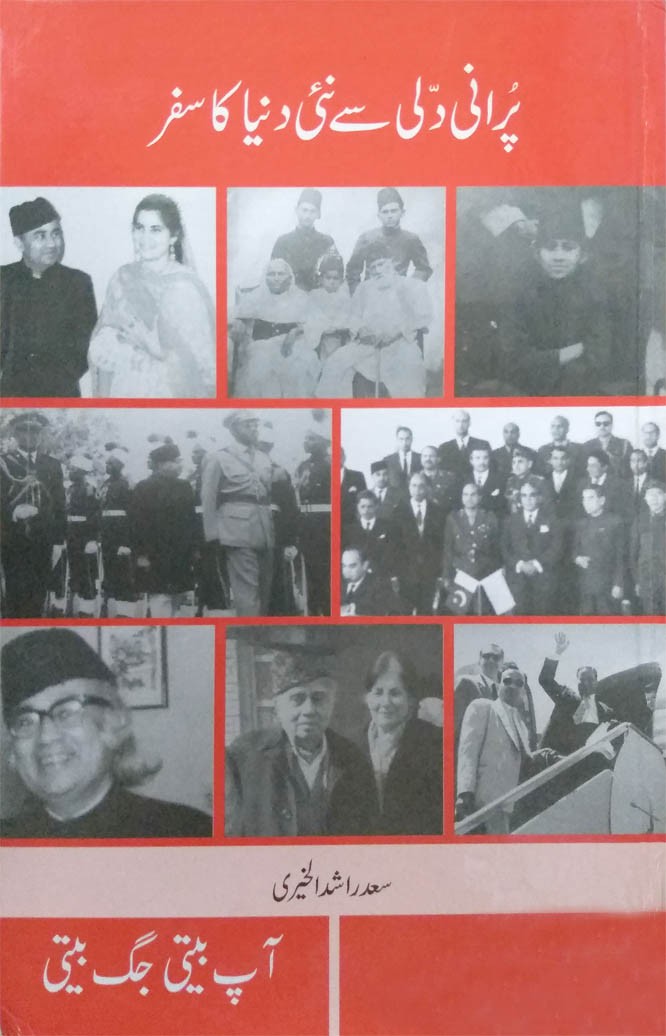
Saad Rashidul Khairi writes an insightful biographical account of both his family and career

The famous family of Dilli or Dehli, or Delhi as the British called it, came to the Indian subcontinent in the seventeenth century and they were not known as Khairis then. The ancestor who came to India was Khair ullah. Only when the family started to be split, going to various parts of the world, it was decided that a common name or title to be given to it for the purposes of identification.
The name, or title chosen, Khairi since then has stuck. The author Saad Rashidul Khairi’s grandfather, Allama Rashidul Khairi, was very famous and earned a name for himself as a prose writer. He wrote about people, real people; since he was able to realistically portray the characters of the women of his age and wrote about their limitations and miseries, he was given the honorific ‘musawir-e gham’.
Rashidul Khairi was also one of the first novelists, so to say, who started to write prose away from the traditional form, the dastaan. The novel with greater realism and less stylisation was the product of European literary interaction with local literatures and he was one of those who tapped into it and crafted a form out of it in Urdu prose.
His son and Saad’s father Razik ul Khairi, who also championed the cause of women, was running a very successful publishing house. The magazines he published that were meant to be for women could only reach them through an act of subversion. It involved a bit of espionage and intelligence work as women were supposed to access these magazines without knowledge of the members of their family, howsoever close. When Razik migrated to Pakistan, the most cherished possession he smuggled with him was the addresses of the women readers who subscribed to his magazine. But, as Razik moved to Pakistan, everything changed.
The first section of this biography regarding colonial India is a realistic account of the lives of the ‘mussalman ashraaf’ in the twentieth century. It revolves around their values, customs, traditions, rituals, and economic activity. It offers a great portrayal of educational institutions and the atmosphere there. Even for people who moved to Pakistan and were unhinged from a lifestyle that spanned over four to five centuries, that era seems like a chapter out of a fairy tale or a folk dastaan. The values and lifestyle was so different to be called medieval; so the hurried or rushed migration catapulted them into the here and now of the twentieth century.
Saad Rashidul Khairi had taken the public services exam in united colonial India but everything was disrupted due to independence /partition. When he came to Pakistan, he was chosen for Foreign Service after an interview. Then begins the second part of the book, while the third part deals with his post-retirement phase when he worked for a Saudi newspaper, and later came back to Pakistan to spend the remaining years of his life.
His tenure at the foreign office was not particularly fulfilling as he met with narrow-minded superiors and colleagues who were not really interested in the work they were doing. It is a revelation that he also worked as an under agent in a cover posting for the CIA. It gives us an insight into the very close relationship that Pakistan has had with the intelligence agencies of the United States (US) and the so-called free world. He was also an eye witness to how the Soviets were offended when after a warmer beginning they were sidestepped by the Pakistanis politicians for a closer link with the US.
His stay in Saudi Arabia made him a critical observer; thus, he gives a very honest account of the lives and values of the Saudis. The state of the media was tightly controlled and the lives of the people equally so; this made them manipulate the system to deviate from it.
The entire story is extremely personal and a recount of the experiences as an individual. It would have been better if he had also given his own views about the foreign policy that the state of Pakistan adopted right from the very beginning. He just hints at the change of policy with Ghulam Muhammad assuming the reins of power after the assassination of Liaquat Ali Khan. He could have mentioned the critical turns the foreign policy took and its impact, positive or negative, on the state. It would also expose his predicaments, leanings and proclivities which are missing in the account.
There are hints about Pakistan getting an invitation from the Soviet Union, the start of the cold war and deteriorating conditions in the post war era but that is only in passing and get lost in other details like his cantankerous relationship with his bosses as well as the life of diplomats abroad, especially from the third world. It also gives a good account of the life patterns in the so-called Muslim world for he had the privilege of serving in Iran, Lebanon, Egypt, Algeria, Syria, Yemen, Sudan, Kenya and Ethiopia, the last two with sizeable Muslim populations.
After seeking early retirement from the Foreign Service, Saad Rashidul Khairi wrote a book on Quaid-e-Azam. He has a style that is very effortless, in the sense that words or the turn of the phrase do not stand on their own but are only a means to expressing the intention. This is a very good and positive ability in a writer, and it’s a pity he did not write more. Like his grandfather, he could have stood on the laurels of his writings alone.
Aap Beeti Jag Beeti
Author: Saad Rashidul Khairi
Publisher: Maktaba Daniyal Karachi, 2018 second edition
Price: Rs 850
Pages: 345